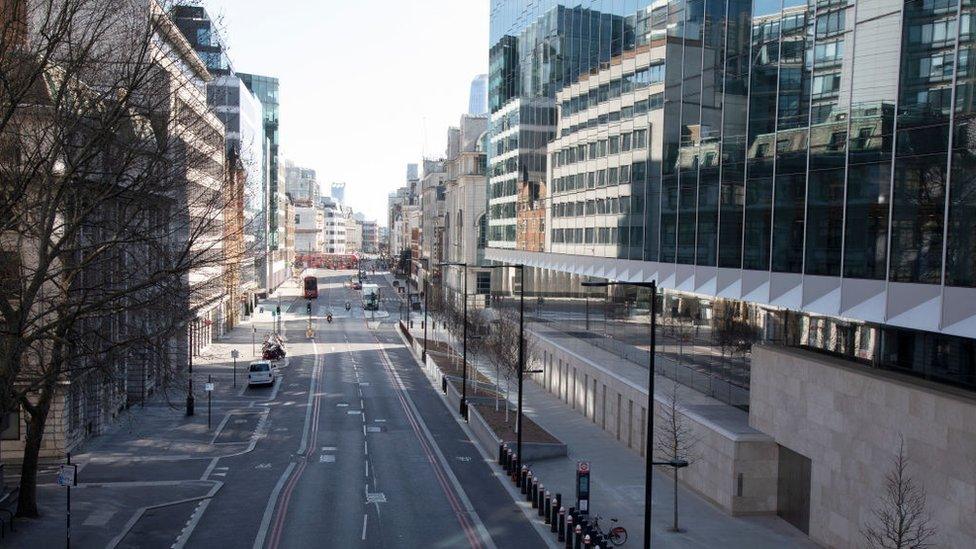Coronavirus: NI Nightingale hospital to reopen due to Covid-19 pressures
- Published
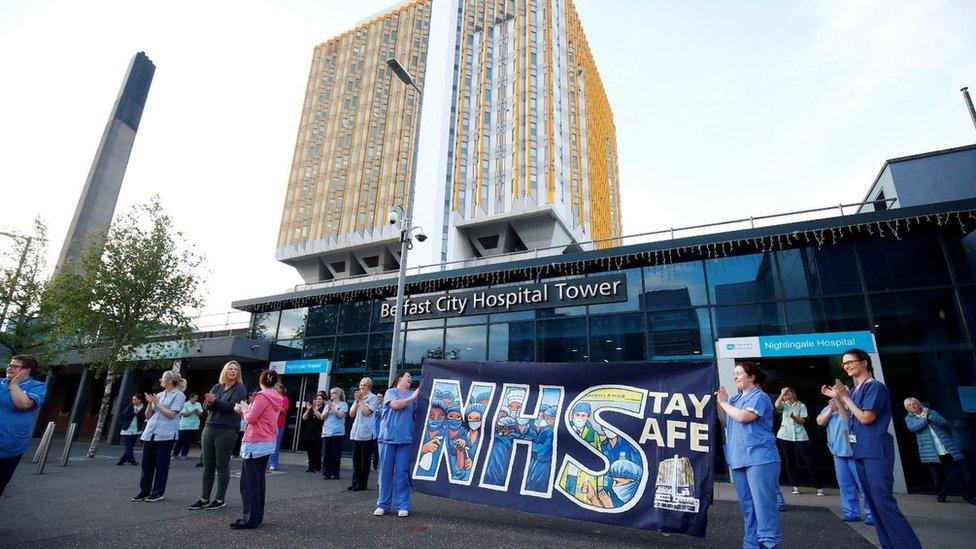
The regional facility at Belfast City Hospital's tower block was temporarily stood down in May
Northern Ireland's Nightingale hospital has been re-established due to Covid-19 pressures, Health Minister Robin Swann has said.
The Nightingale, at Belfast City Hospital's tower block, was stood down in May as cases began to decrease.
Mr Swann said there were now "rapidly escalating pressures" across all of NI's health trusts.
"It is not something I wanted to do - it was a decision I tried to hold off on for as long as possible," he said.
"The virus is rapidly and exponentially and urgent action was needed."
'Many questions'
Nightingale hospitals are non-permanent facilities that were set up across the UK during the first wave of the pandemic.
On Tuesday, the Belfast Trust announced it was to use an intensive care unit in the Nightingale facility for its Covid patients, in a move which only affected the Belfast Trust area.
Mr Swann's announcement on Wednesday will see the facility reopen for Covid-19 admission from across Northern Ireland.
The decision comes as health chiefs warned that some services were beginning to suffer due to Covid-related pressures.
On Wednesday it was announced more restrictions would be placed on the hospitality industry and schools.
Mr Swann acknowledged the public had "many questions, doubts and fears" about the new restrictions.
"My heart goes out to all those businesses who will now come under even more pressure and to all those people whose lives and plans have been thrown up into the air," he said.
'Out of control'
The deaths of another four people who tested positive for Covid-19 were reported by the Department of Health on Wednesday, bringing the death toll to 602.
The department also reported another record high in the number of newly-diagnosed cases, with 1,217 people testing positive.
NI's chief scientific adviser said the increase in cases of Covid-19 cases in NI was not due to increased testing but instead "reflect a genuine increase in community transmission".
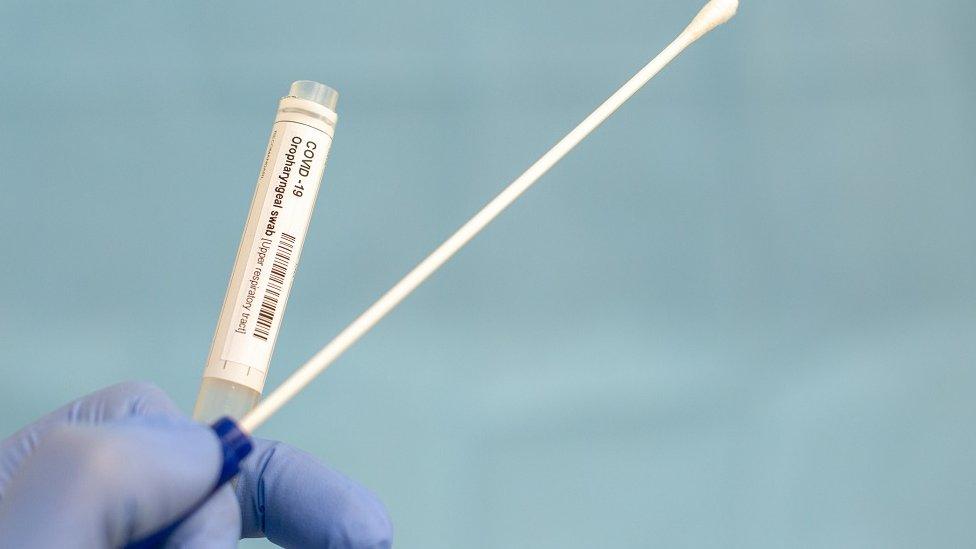
NI's chief scientific adviser said the average number of daily cases recorded was currently 950
Prof Ian Young, who was alongside Mr Swann at the Stormont briefing, said testing had increased by 25% while cases had more than doubled.
"The average number of positive tests continues to rise and has now reached over 12% in the last seven days," he said.
"To put this into context, the World Health Organization suggests that anything over 5% reflects an epidemic which is out of control."
'Achieve reset'
Prof Young said there had been a "sustained and dramatic rise in the average number of cases" being recorded in NI each day - he said the average was currently 950 cases per day.
He added the new restrictions "don't represent a lockdown" but were designed to reduce mixing between people to allow a chance to reduce the R-number down to less than one.
R is the number of people that one infected person will pass on a virus to, on average.
"Ideally between 0.7 and 0.9 - that's the goal and we all have a role in achieving that," Prof Young said.
Northern Ireland's chief medical officer told the briefing new restrictions coming into force across NI could "achieve the reset we need so badly".
Dr Michael McBride said it would take two to three weeks before the effects of the measures became clear.
"It's time to wise up," he said.
"The new measures will only work if each one of us recommits to strictly following the health advice."
- Published14 October 2020
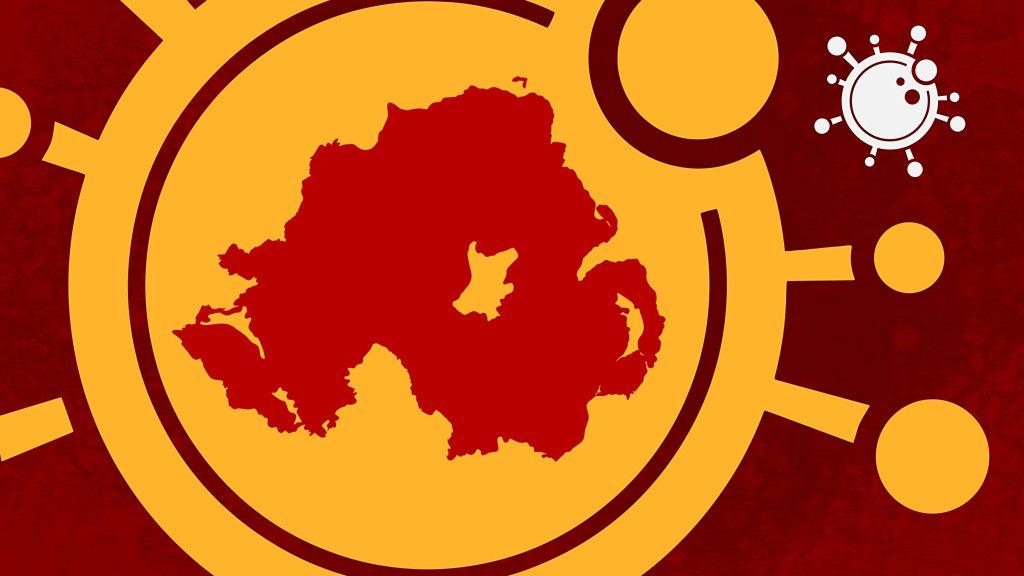
- Published14 October 2020
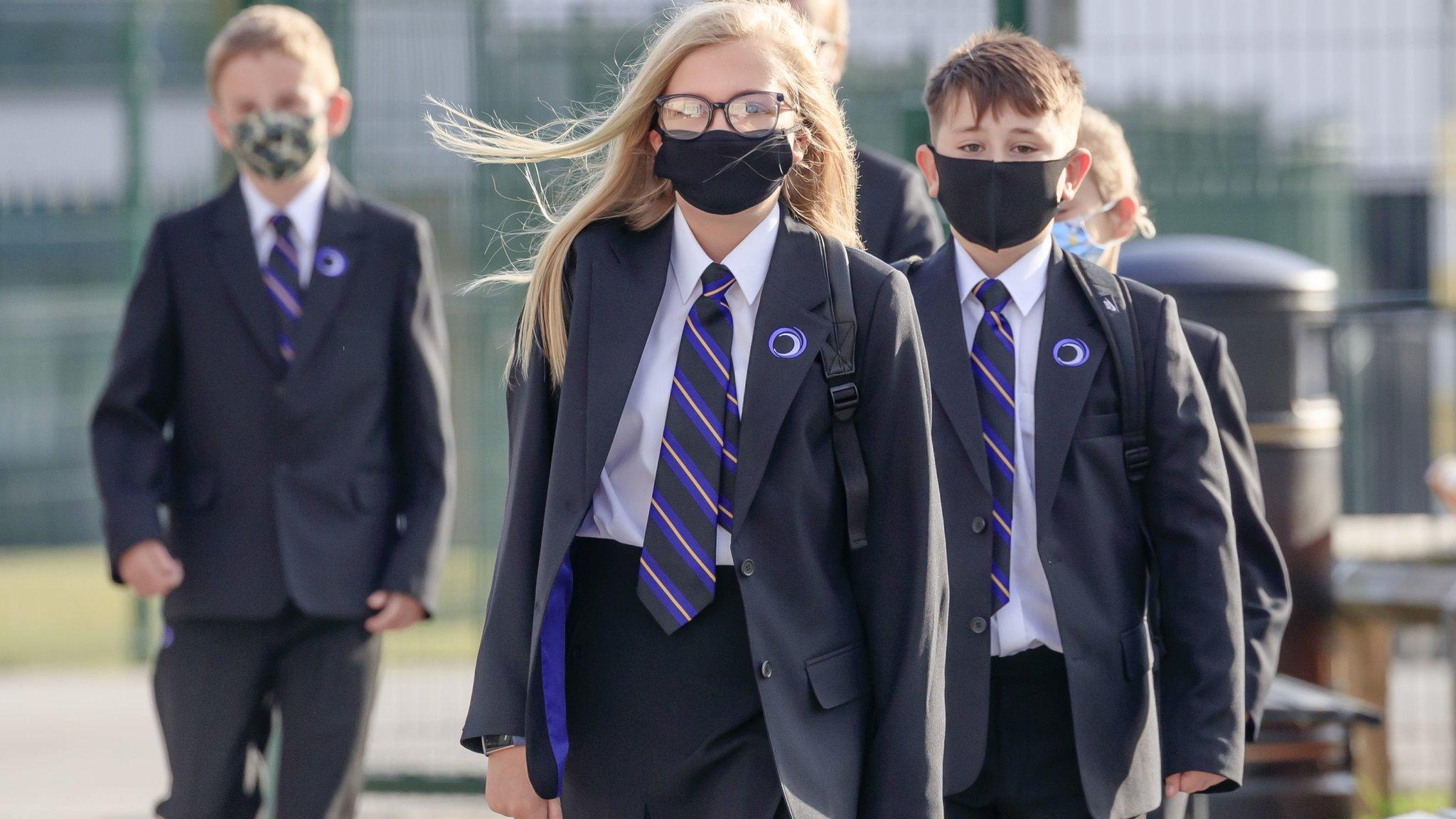
- Published14 October 2020
